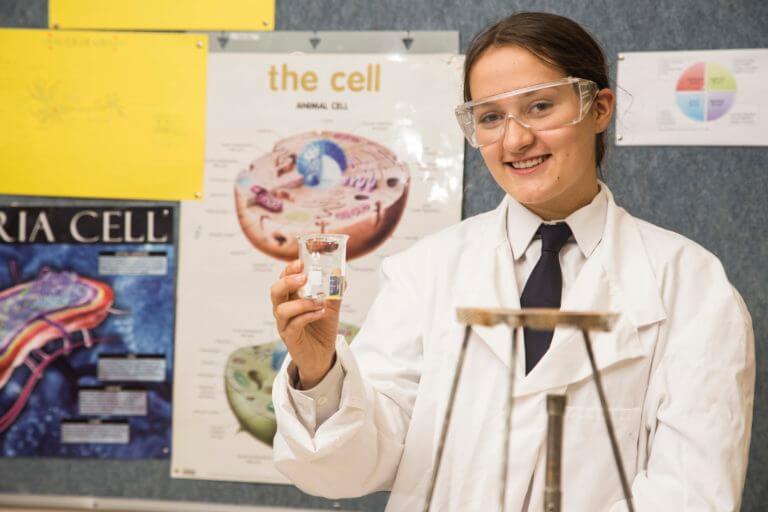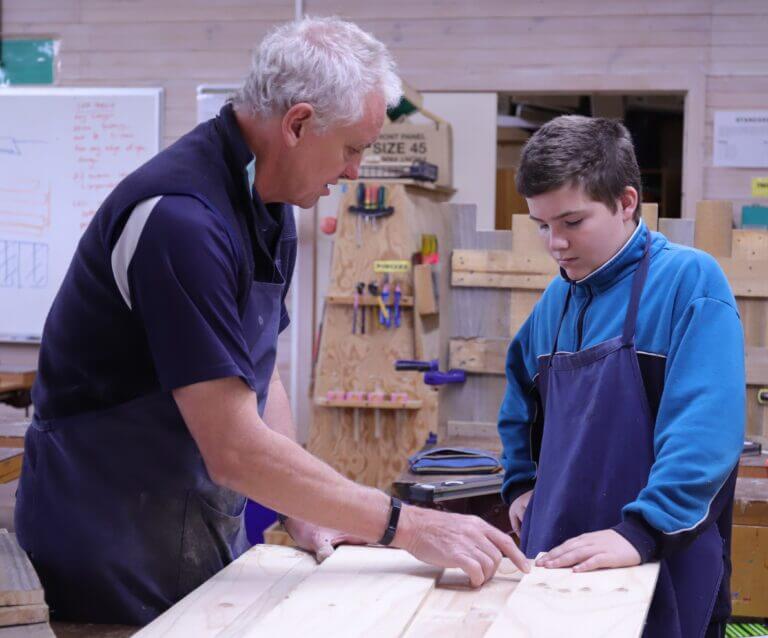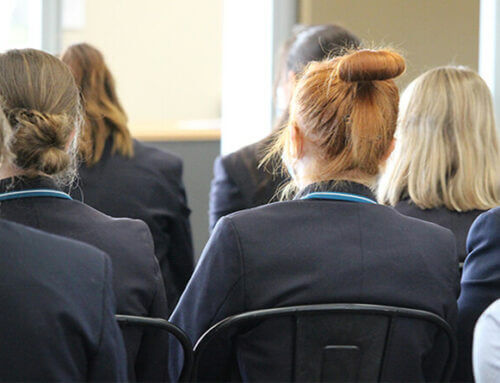For students to thrive in a changing world, they need education of a different kind
Cornish College educates for a sustainable future so young people can make a positive difference in their local and global communities. For our students to do so in a changing world, education of a different kind is required. We encourage a love of learning by building skills through structured inquiry and a differentiated curriculum, working with students to help them develop an entrepreneurial mindset with the desire and confidence to make a difference.
Cornish teachers feel a deep responsibility to prepare students for the new world reality. Our approach to teaching and learning is founded on extensive research and reflection, and it evolves as the world and our students’ needs change.
Why do we need education of a different kind?
Research by the Foundation of Young Australians (FYA) has identified dramatic changes in the world of work. While a university degree once almost guaranteed a career path and a student’s ATAR determined university entrance, this is no longer the case, with one in four students now gaining entrance through other means. Although it was once expected that by the age of 25, most would be settled in full-time employment, living independently and possibly purchasing a home, this is often not the case.

This new work reality has been devastating for unprepared young people and their parents. There is still a general expectation that by 25, traditional milestones – such as the completion of education, job security, leaving home and financial independence – should have been achieved, and the inability to do so has led to the ‘quarter-life crisis’. Young people are suffering from anxiety and depression at unprecedented rates, with commentators believing this is the first generation of young people to be worse off than their parents.
To succeed in this new world, young people need to develop different skills than their parents did. In The New Basics report (2016), FYA analysed 4.2 million job postings from 2012 to 2015, examining skills that employers seek. They found that employers today demand ‘enterprise skills’ 70% more than jobs in the past. These skills, also known as ‘21st-century skills’, are a response to the new work order which has involved a dramatic shift from lower skill or manual roles towards jobs with higher skills and interpersonal contact. Generic transferable skills including problem-solving, communication, teamwork and financial literacy are increasingly required, and in the last three years, the demand for digital literacy skills has increased by 212%, critical thinking skills by 158%, creativity by 65% and presentation skills by 25%.
What is education of a different kind?
The need for education of a ‘different kind’ has been widely recognised; however, few educational institutions have responded. Gonski 2.0 and the Australian Curriculum highlight the importance of enterprise skills. The Victorian Foundation-Year 10 Curriculum, a framework for schools and teachers, mentions enterprise skills 466 times. The South Australian government’s 2018 Entrepreneurial Learning strategy asserted that entrepreneurial and enterprise skills are necessary for all students. The 2017 Mitchell Institute report The Paradigm Shifters: Entrepreneurial Learning in Schools states:
Entrepreneurial learning is an emerging way of responding to the growing need to enhance student capabilities to apply knowledge in sophisticated ways, to deepen student engagement and to cultivate the mindsets to position students for success.
Considering the traditional education system originated during the First Industrial Revolution – when young people listened passively to a teacher and then became passive factory employees who would undertake menial, repetitive tasks – its inadequacy is clear.
What are we doing at Cornish College?
We know it is vital for our students to develop strong literacy, numeracy and STEAM (science, technology, engineering, art and mathematics) skills. We are also passionate about developing their entrepreneurial, critical thinking skills.

In Years 8 and 9, students choose from over 60 ‘Super Studies’ units, including:
- Designing and producing solar boats
- Using 3D printers to design and produce chess pieces
- Applying basic, real-life financial skills
- Demonstrating enterprise skills required to start a business
- Creating and producing a theatre production
- Designing, organising and running an outdoor education camp
- Operating a school cafe
- Obtaining certifications such as a boat licence, First Aid and barista accreditation
Although diverse, these subjects all offer authentic learning experiences that develop 21st-century skills involving four Cs – communication, critical thinking, creativity, and collaboration. In a recent article, middle school expert and educator Dr Dru Tomlin argued that as the 22nd century quickly approaches, “…we need to add another four Cs – care, connection, culture and community.”
The United Nations Sustainable Development Goals directly reflect our new world order and the challenges we face. Education of a different kind which develops an ethical, entrepreneurial growth mindset is essential.
For a sustainable world, we need our students to care, both about themselves and the world in general. We need them to have the capabilities, confidence and the desire to act. They will only gain this through an education which empowers them to be a valued member of a connected community. An education which challenges them to think and respond, to find their passion, and to develop their confidence so that everyone can make a difference.
Nancye Banks has been a teacher for nearly 35 years, 20 of these at Cornish. She has taught a wide variety of subjects and has always had a passion for teaching through an experiential approach. She strongly believes that this develops vital entrepreneurial skills and attitudes in her students. Nancye currently teaches senior commerce subjects: Economics, Business, Legal Studies and Accounting.



